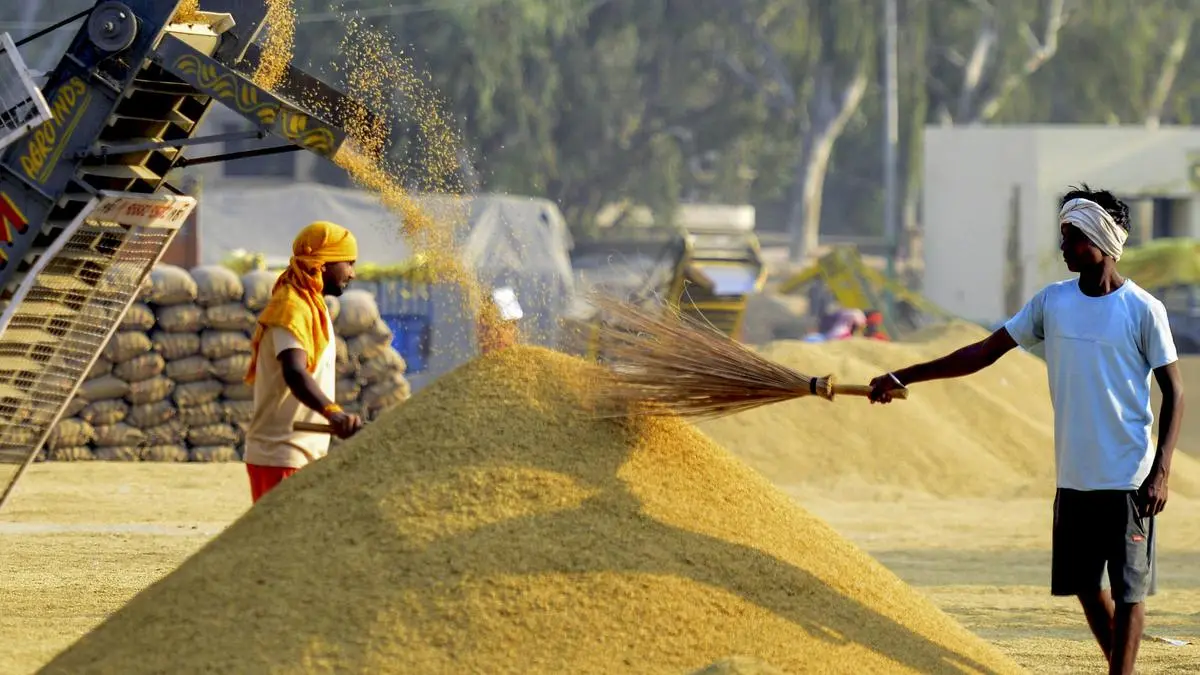
The State government had notified the Centre of six wheat varieties which had 50% higher concentration of nitrogen, phosphorus and potash
| Photo Credit:
PTI
The Punjab government has raised objection with ICAR on allowing release of certain wheat varieties which require high fertilizer application. This follows Punjab Agriculture University (PAU) expressing its reservations on their suitability for the State. The State government is said to have decided not to allow these varieties in Punjab to check use of chemical fertilizers.
In a letter to director general of Indian Council of Agricultural Research (ICAR) last week, Managing Director of Punjab State Seeds Corporation (PunSeed) Shailender Kaur said that it needs “urgent guidance and clarification” on the issue as farmers need to be supplied suitable varieties at the earliest.
PAU’s Director of Research Ajmer Singh Dhatt in October had informed the State government of six wheat varieties – DBW 303, DBW 327, DBW 332, DBW 370, DBW 371 and DBW 372 – notified by the Centre after testing under high input trials (not under regular trials). Further, he pointed out that those varieties were applied 50 per cent higher (nitrogen, phosphorus and potash) against normal usage in other wheat varieties.
For instance, if a farmer was using 2 bag of urea/NPK/DAP, he has to use 3 bag for these varieties. Besides, those varieties were also applied Farmyard Manure (FYM) as well as growth regulators/retardant (Lehocin) to get the yield.
“These varieties have not been notified for the normal recommended fertilizer dose. PAU has always advocated judicious use of inputs and not in favour of excessive use of fertiliser, fungicides, growth regulators. Therefore, PAU does not recommend cultivation of these varieties at farmer fields of Punjab,” Dhatt said.
For affected farmers
Citing the communication, PunSeed’s Kaur has informed ICAR Director General M L Jat that since it is supposed to supply certified wheat seeds under National Food Security Mission (NFSM) scheme at subsidised rates and free of cost to the flood-affected farmers under Rashtriya Krishi Vikas Yojana (RKVY) scheme, there is a need for clarification with regard to the six varieties, developed by the Karnal-based Indian Institute of Wheat and Barley Research (IIWBR).
On the other hand, sources in ICAR said that the yield of these varieties vary from 7.5 tonne to 8 tonne per hectare against an average 5-6 tonne harvested from other varieties. Since these six varieties in question are recommended for early sowing, there has to be some extra doses of fertilizers, the sources said agreeing to the higher input used.
“It is for the farmers to decide and if they want higher yield, they should be allowed. The demand has gone up as due to paddy getting harvested earlier than normal this year. So, far 93 per cent of about 35 lakh hectares under paddy has been cleared for wheat planting.
ICAR sources also said that there is a wheat variety named PBW 872, developed by PAU, which has similar traits as the DWR series and was also tested under higher doses of fertilizer. Another similar wheat variety developed by Haryana Agriculture University, Hisar, is also in cultivation, the sources added.
PBW 872 is a high-yielding wheat variety that offers resistance to brown rust and good for chapati-making. It takes approximately 152 days to mature and has over 9 tonne per hectare yield potential. PAU’s Dhatt declined to comment.
Published on November 12, 2025
